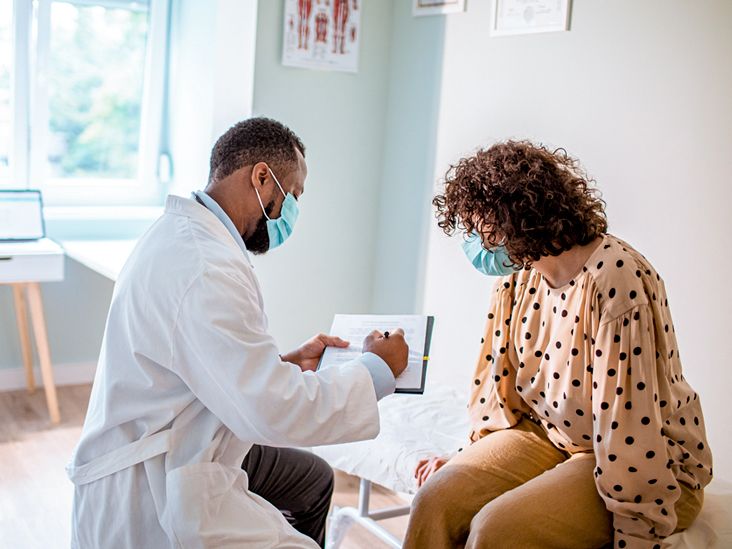Introduction
When it comes to healthcare, we often focus on the initial treatment—whether it's surgery, medication, or therapy. But what about the road that follows? The importance of follow-up appointments after treatment cannot be overstated. These check-ins play a crucial role in ensuring that recovery is not only successful but also sustainable. Patients may feel like they can skip these appointments, especially if they are feeling better; however, this can lead to dire consequences.
In this article, we’ll delve deep into why follow-up appointments are essential for both patients and healthcare providers. From monitoring health progress to preventing complications and facilitating communication, follow-ups serve as a vital bridge between treatment and long-term health outcomes.
Understanding Follow-Up Appointments
What Are Follow-Up Appointments?
Follow-up appointments are scheduled visits between a patient and their healthcare provider after an initial treatment has been given. These appointments allow doctors to monitor how well the patient is recovering and whether any additional interventions are needed.
Why Are They Necessary?
Monitoring Recovery
After a procedure or treatment, it’s crucial to observe how the body responds. Does healing occur as expected? Are there any unexpected side effects? Follow-ups allow healthcare providers to gather this information effectively.
Preventing Complications
Some complications may not manifest immediately after treatment. Regular follow-ups help in catching these issues early before they escalate into more severe problems.
Adjusting Treatment Plans
Not all patients respond similarly to treatments. Follow-up visits provide opportunities for adjustments based on individual responses.
The Role of Communication in Follow-Ups
Facilitating Patient-Provider Dialogue
Communication is key in any relationship, including that between a patient and a healthcare provider. Follow-up appointments offer an avenue for open dialogue where patients can express concerns or ask questions regarding their health status or ongoing treatments.
Patient Education During Follow-Ups
Education is empowerment! During follow-up visits, healthcare providers can educate patients about signs of complications to watch for, lifestyle changes that can aid healing, or even medication adherence tips.
Benefits of Regular Check-Ins Post-Treatment
Enhancing Health Outcomes
Regular follow-ups have shown to drastically improve health outcomes by ensuring that any potential issues are dealt with promptly and effectively.
Building Trust with Healthcare Providers
When patients engage consistently with their caregivers through follow-up appointments, it fosters trust and respect—essential ingredients for effective healthcare.

Different Types of Follow-Up Appointments
Routine Check-Ups Post-Surgery
These are standard visits scheduled weeks or months after surgical procedures to assess healing and function.
Specialized Follow-Ups Based on Treatment Type
Depending on the type of treatment received (e.g., chemotherapy), specialized follow-ups might be necessary more frequently.
Consequences of Skipping Follow-Up Appointments
Potential Health Risks Involved
Ignoring follow-up appointments can lead to missed opportunities for early detection of complications such as infections or chronic pain syndromes.
Increased Healthcare Costs Over Time
While it might seem cost-effective initially to skip these appointments, the long-term financial implications can be significant due to increased treatments needed down the line.
Case Studies: When Follow-Ups Made All the Difference
Example 1: Surgical Recovery Success Story
John had knee surgery and initially felt great post-op—but when he skipped his follow-up appointment, he developed an infection that could have been prevented with timely intervention.
Example 2: Managing Chronic Conditions
Sarah struggled with diabetes management after her initial diagnosis but found her condition stabilized significantly when she committed to regular check-ins with her endocrinologist every three months.
Legal Implications: Medical Malpractice Considerations
When Neglecting Follow-Ups Leads to Legal Issues
Patients harmed due to neglected follow-up care may seek legal recourse through medical malpractice claims—especially if it could be proven that failing to schedule these appointments resulted in avoidable harm.

Consulting a Los Angeles Medical Malpractice Lawyer
If you believe your health suffered due to missed follow-ups or negligence from your provider's end, consulting a Los Angeles medical malpractice lawyer may provide you avenues for justice and compensation.
Psychological Benefits of Following Up After Treatment
Peace of Mind Through Reassurance
Knowing you have an upcoming appointment can alleviate anxiety about your recovery journey—patients who attend their follow-ups often report feeling more secure about their health status.
Support Systems During Recovery
Follow-ups often serve as a checkpoint where http://medical-record-mistakes-in-los-angeles-insurance-toolkit.fotosdefrases.com/frequently-asked-questions-about-filing-a-medmal-lawsuit emotional support networks (family members or friends) can participate in discussions about recovery plans and necessary lifestyle changes together with the healthcare provider.
FAQ Section
1. Why do I need a follow-up appointment?
Follow-up appointments help monitor your recovery progress and catch any potential complications early on.
2. How soon should my first follow-up be scheduled?
Typically within two weeks post-treatment; however, specific timing varies based on individual circumstances and types of treatments received.
3. What happens during a follow-up appointment?
During these visits, your medical history will be reviewed along with any symptoms you may have experienced since your last visit—tests might also be performed if deemed necessary.
4. Can I cancel my follow-up appointment if I'm feeling fine?
It's generally not advisable; even if you're feeling well now, underlying issues may arise later that only a professional can detect.
5. What if I miss my scheduled follow-up?
Contact your provider as soon as possible; rescheduling promptly ensures you get back on track concerning your care plan.
6. Are there costs involved in follow-ups?
Yes; costs vary based on insurance coverage—it's best to check with your provider beforehand regarding your plan's specifics regarding co-pays or deductibles related to these visits.
Conclusion
In summary, the importance of follow-up appointments after treatment cannot be emphasized enough—from physical recovery monitoring and complication prevention to emotional reassurance and legal considerations involving medical malpractice claims. These touchpoints serve as critical milestones in maintaining one’s overall well-being post-treatment. So next time you’re tempted to skip that scheduled visit because you’re feeling good—think twice! Your future self will thank you for taking those extra steps toward ensuring lasting health benefits and peace of mind.
This comprehensive overview highlights why engaging fully in post-treatment care through consistent check-ins is indispensable—not just for immediate recovery but also for long-term well-being!